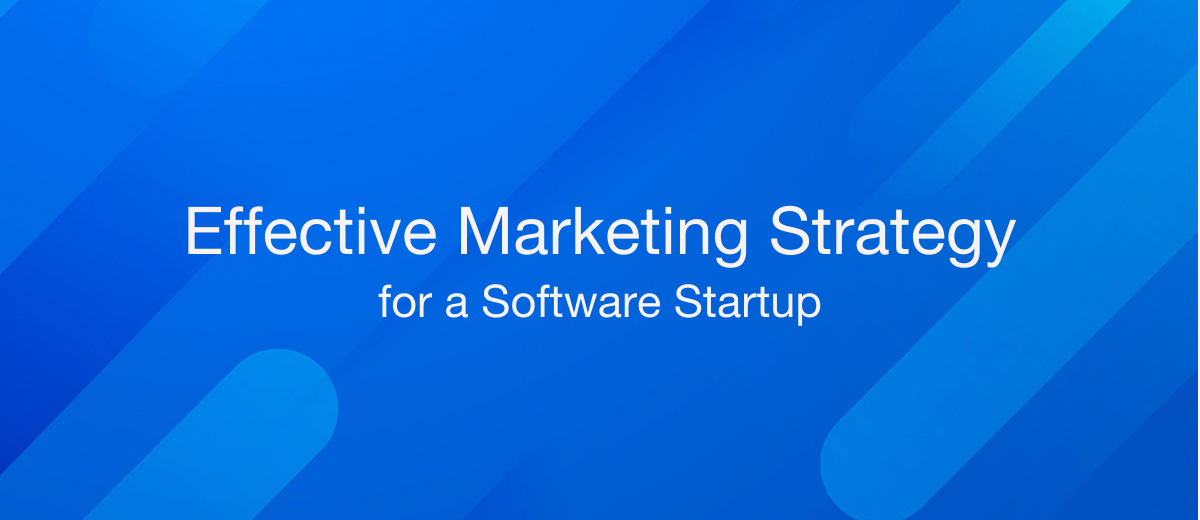How to Create an Effective Marketing Strategy for a Software Startup
Effective marketing is often a key to successful sales. However, not all organizations can formulate good marketing strategies. For instance, start-ups in the software niche, like a crypto tax software business, find it challenging to conceive good marketing strategies. For companies or organizations like that and many others, we have covered several pertinent points in the article below, which will help them, and you as a business owner, gain insight on how to make an impact with appropriate marketing strategies.
5 Key Marketing Strategies for Software Startups
Software is an industry with its own special marketing requirements. Since there is practically nothing physical to offer to customers, the marketing strategies differ a little bit from other product-based businesses. Discussed below are the five key marketing strategies for start-ups in the software niche.
1. Creating Videos
Software and technologies can be complicated to understand. Introducing videos as a marketing strategy has the potential to work wonders for your brand. Videos can visually translate complicated processes and enable viewers to understand your solutions better.

It has been proven through a study done by MIT that humans are capable of recalling visual content quicker as compared to text. In fact, it only takes 13 milliseconds for the brain to register visual information as compared to text.
2. Leveraging Influencers
The public, when in need of a software-based solution, often looks to the most prominent figure associated with the industry for reviews and feedback. Enter: Influencers. The world has a horde of extremely popular software influencers like Marques Brownlee, Erica Griffin, and more.
Searching for software influencers and partnering with them to create a wider outreach for your brand is an excellent marketing strategy. Meanwhile, you can also track and report on your influencer marketing campaigns with ease. It helps you leverage social media effectively for marketing.
3. Use Automation Tools
With the increase in digital transformation and adoption of technologies, the data that consumers generate daily is high in volume. To ensure that your marketing strategies are in line with the latest trends, you need to stay on top of this data.
Employing marketing automation tools (like CRM) helps you leverage customer data to generate important insights that can inform your marketing strategies effectively. You can even make use of calling software to streamline customer communication.
4. Remarketing
Every business has customers who simply forget about the brand. An important part of marketing is to get back in touch with these customers and see if they can be brought back into your pipelines. Remarketing helps you create consistency with customers and improve retention rates. This can be done by creating customer portals, nurturing and loyalty programs, building forums and communities, and more.
5. Focus on Interactions and Experiences
Interactivity has now become a key component of user interface enrichment, including gamification and enhanced digital experiences. Ensuring that your customers have a good time viewing your website and take back relevant, important information with them is a marketing strategy in itself. It keeps your customer thinking about their website experience and coming back to your business as a warm lead.
12 Easy Steps to Implement Marketing Strategies
A marketing strategy is only as good as its implementation. Discussed below are 12 easy ways in which you can effectively make the most out of the marketing strategies you have devised for your software start-up.
1. Set Goals
Every marketing strategy comes attached with a goal. A few examples of marketing goals are:
- Getting more subscribers.
- Improving brand awareness.
It is essential to keep the marketing goals front and center of your strategy implementation.
For instance, to get more subscribers, your marketing implementation should focus more on improving website functionality regarding the UI and incorporating the necessary CTAs at strategic locations.
2. Define the Target Audience

Would you market your services of crypto tax consultants the same way to Boomers as you would do Millennials? The answer is no. Your approach will therefore be tailored to your audience. In the same manner, getting a good idea of who your target market comprises gives you a starting point to implement your marketing strategies.
3. Invest in Paid Search
It may sound counterintuitive to invest in paid search for marketing strategy implementation. However, consider this Clutch survey: 75% of the marketing professionals agreed that paid search gave them the necessary information needed for targeted marketing.
Invest money in paid ads to get an idea of the demographics that click on them. It will help you align your marketing strategies better with your target audience.
4. Be Omnichannel and Cross-channel
This is the age of the Consumer – you cannot expect the customers to come to you. Your brand must meet them where they are. There is a multitude of social media channels today, and email, instant messaging, online communities, and forums.
Your customers are everywhere. Make it a point to incorporate technologies that help your brand implement your marketing strategies using omnichannel and cross-channel methods. Consumers today want seamless experiences, and this can make it happen.
5. Leverage Guest Publishing
One aspect of marketing is to get your brand noticed in professional forums and communities. If your marketing strategy focuses on generating brand awareness, you can leverage the presence of online publishers to publish high-quality blogs and articles written by you.
The major advantage of this method is that it allows your brand to be noticed by a highly targeted audience that is already engaged.
6. Publish Educational and Guiding Content
For companies in the software industry, there is immense potential in leveraging how-to articles, troubleshooting guides, update-oriented blogs, and product reviews to get the audience hooked on their content.
Publishing material around these formats will help you get more sign-on, and will also help you create quality content published across the right resources. It will also help your business establish certain authority on these topics.
7. Invest in a Robust, Experiential Website
Today, websites have become the single most important aspect of a business in the online world. Especially for start-ups in the software industry, it is essential to prove their mettle by delivering a website that is secure and speaks for the brand.
Focus on creating immersive, intuitive digital experiences for your customers who deliver value at each touchpoint and aim to personalize their next visit. It helps to score more leads.
8. Ensure SEO is Good
One of the most important steps for any online marketing strategy to work is to ensure that your search engine optimization strategy is on point.

Optimize all your online channels for the right keywords. Invest in PPC advertising, and monitor how your competitors are performing for the keywords selected. It helps to install SEO software that shows you all the metrics and helps you optimize your online channels in the form of an extension etc.
9. Register on Industry Ranking Websites
There are countless websites online that rate and rank businesses in the tech and software industry, like Clutch, TechReviews, G2, etc.
Make it a point to register on these websites and regularly update your profile. Ask for reviews and ratings from customers by providing them with links to these websites. It helps you to create profiles that rank high based on customer feedback to establish trust among new leads.
10. Keep Things Simple
Using industry jargon and complicated language may actually drive potential customers away. This is because the more complicated a product sounds, the more people want to stay away from it.
Most of the time, customers are looking for an easy and effective fix to their software and technology problems, which is why the best way you can relate to that is by showing them how simple your solution is. This is because simplicity and clarity are the basis for any sound marketing strategy.
11. Deliver the USP of Uniqueness
In the post-pandemic market, there is tough competition in the software and technology industries. If your start-up is to be successful in scoring leads, you must present your brand in as unique and novel a way as possible. Make sure to establish USPs that are bound to sell. You need to create content that sells a solution that no other brand has to a very common problem.
12. Keep Improving
Software and technology are niches that continue to evolve as better versions are released. Your marketing implementation should evolve accordingly. For example, social media may be a lot of buzz today, but a few years later, there may be new channels to explore. It helps to keep an eye on the trends and adjust your marketing strategy implementation accordingly.
Wrapping Up
The success of your products depends a lot on how they are marketed. This task can be challenging for software start-ups because of the sheer volume of competition that exists today. However, strategies do exist that can help you get noticed.
Here is a quick recap:
- Always ensure that your SEO is on point.
- Incorporate videos to explain complicated concepts, as videos make it easier to understand.
- Automate your marketing ecosystem. It helps save a lot of manual effort, eliminates errors, and records essential data.
- Focus on delivering great experiences to your customers, not just a flat website.
- You can also consider onboarding influencers or associate marketers for your brand.
By ensuring that you build on the five key strategies discussed and implement them the right way, your brand should be able to gain good traction in the online market.
Time is the most valuable resource for business today. Almost half of it is wasted on routine tasks. Your employees are constantly forced to perform monotonous tasks that are difficult to classify as important and specialized. You can leave everything as it is by hiring additional employees, or you can automate most of the business processes using the ApiX-Drive online connector to get rid of unnecessary time and money expenses once and for all. The choice is yours!

